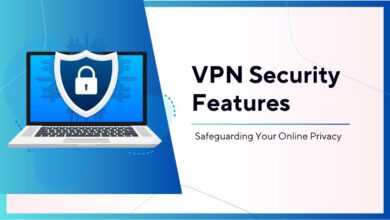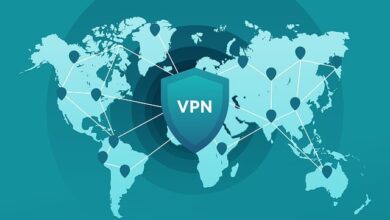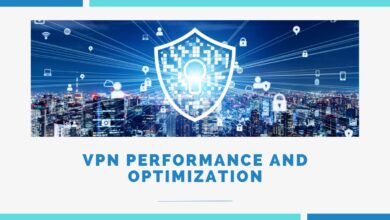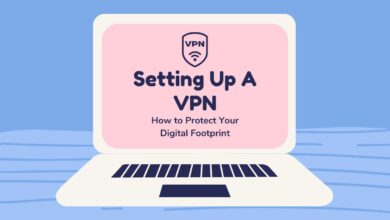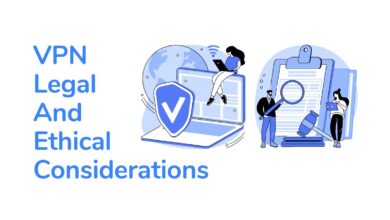Technical Insights for VPN Service Providers and Industry
As the digital world evolves, so does the need for robust, secure, and efficient Virtual Private Network (VPN) services. Whether you’re deeply involved in the VPN industry or simply keen on the latest tech developments, understanding the workings of VPN technology and its industry implications is crucial.
So, what are the technical insights for VPN service providers? Let’s dive in and explore the ever-evolving landscape of VPN technology.
Understanding VPN Tunneling
When you use a VPN, your data is sent through a ‘tunnel’ that connects your device to a VPN server. This tunnel serves as a secure corridor, shielding your data from external threats and prying eyes. VPN tunneling is crucial for protecting sensitive information, maintaining online anonymity and privacy, and securely accessing the internet.
During this process, two key things happen:
-
First, your data is encrypted before it leaves your device, rendering it unreadable to anyone who might intercept it. Then, as your data travels through this tunnel to the VPN server, it remains protected and hidden from potential eavesdroppers or hackers.
-
Once your encrypted data reaches the VPN server, it is decrypted and sent to its final internet destination, such as a website.
To outside observers, including your internet service provider, your traffic appears to be coming from the VPN server, not your personal device, thereby masking your IP address and geographic location.
DNS Leak Protection
DNS leak protection is a critical feature in VPN services that ensures your online activities remain private. When using a VPN, your DNS requests should also be routed through the VPN’s encrypted tunnel, preventing your ISP or any other unauthorized party from seeing your internet activity. However, sometimes, due to software vulnerabilities or configuration errors, your device might still send DNS requests outside the VPN tunnel directly to your ISP. This is known as a DNS leak.
DNS leak protection is designed to prevent this from happening. It ensures that all DNS requests are securely routed through the VPN server, not your ISP’s servers. This means that your online activity, including the websites you visit, remains private and is only known to you and your VPN provider. [1]
Fast Facts
“Ongoing advancements in encryption and data routing technologies will aim to minimize the impact of VPNs on internet speed.”
The Significance of Server Locations
Server locations are a key factor in the effectiveness of a VPN. They influence the speed, access to content, privacy, and overall user experience. When choosing a VPN provider, considering the range and spread of their server locations can greatly enhance your VPN usage.
Speed and Latency
The physical distance between your device and the VPN server can greatly impact your internet speed and latency. Generally, the closer the server is to your location, the faster and more reliable your connection will be due to shorter data travel time.
Access to Geo-restricted Content
VPN server locations determine the geographic boundaries you can virtually cross. By connecting to servers in different countries, you can access content that may be restricted in your own region, such as streaming services, websites, and online platforms.
Privacy Laws and Jurisdictions
Different countries have different privacy laws and levels of government surveillance. Choosing a server in a country with strong privacy laws can offer an additional layer of protection for your online activities.
Network Redundancy and Reliability
A VPN provider with a wide distribution of servers across various locations offers more options for connectivity and ensures better service reliability. If one server is down or overloaded, you can easily switch to another server.
Impact of VPNs on Internet Speed
VPNs can impact internet speed in various ways, and understanding this impact is important for users who rely on VPNs for privacy and security. Here are the key aspects of how VPNs can affect your internet speed:
Encryption Overhead
VPNs encrypt data for security, which adds extra information to each data packet. This process, known as encryption overhead, can slightly reduce internet speed because it takes additional time to encrypt and decrypt the data. [2]
Distance to VPN Server
If the server is far away, data takes longer to travel back and forth, potentially leading to higher latency and slower speeds. Choosing a server closer to your location can minimize this impact.
Server Load and Quality
An overloaded server or one with limited bandwidth might result in slower internet speeds. High-quality VPN providers typically manage their server load effectively to minimize this issue.
VPN Protocols
Different VPN protocols balance speed and security in different ways. Some protocols prioritize speed, offering faster internet connections with less security, while others focus on strong encryption, which may slow down the connection.
ISP Throttling
In some cases, VPNs can actually improve internet speed, particularly if your Internet Service Provider (ISP) throttles (intentionally slows down) your connection for certain activities like streaming or gaming. Since a VPN encrypts your data, making it difficult for your ISP to monitor your activities, it can help prevent throttling.
IPv6 and VPNs
As the internet evolves, the transition from IPv4 to IPv6 brings about new considerations for VPN users and providers. Here’s how IPv6 interacts with VPNs:
-
Larger Address Space: IPv6 was developed to address the shortage of IP addresses in IPv4. It offers a vastly larger address space, which is crucial for the growing number of devices connecting to the internet.
-
Compatibility Issues: Many VPNs are still primarily optimized for IPv4. This means that if your internet connection uses an IPv6 address, and the VPN only supports IPv4, there could be compatibility issues. In such cases, the VPN might not properly route IPv6 traffic, potentially leading to privacy leaks.
-
IPv6 Leak Protection: To address the above issue, many VPN providers offer IPv6 leak protection. This feature ensures that even if you have an IPv6 address, your data won’t leak outside the VPN tunnel, maintaining your privacy and security.
-
Future-Proofing VPNs: As more of the internet transition to IPv6, VPN providers are increasingly adapting their services to fully support IPv6. This includes handling both IPv4 and IPv6 traffic securely and efficiently.
-
Security Implications: IPv6 comes with its own set of security considerations. Since IPv6 is relatively new, not all network infrastructure and security tools are fully adapted to it. VPNs that support IPv6 can provide an additional layer of security for these connections.
Fast Facts
“The increasing trend of remote work will lead to broader VPN adoption in the business world.”
Multi-factor Authentication and VPNs
Multi-factor authentication (MFA) and VPNs are both critical components in the landscape of digital security. When combined, they provide an enhanced level of protection for accessing sensitive data and secure networks. Here’s how MFA interplays with VPNs:
-
Enhanced Security: MFA adds an additional layer of security to VPN logins. While a VPN encrypts your internet connection and protects your data from external threats, MFA secures your VPN account access.
-
Authentication Process: When you enable MFA on a VPN, the login process involves more than just entering a username and password. It requires at least one additional verification factor, which could be a fingerprint, a facial scan, a one-time passcode sent to your mobile device, or a security token.
-
Preventing Unauthorized Access: The primary purpose of MFA in the context of a VPN is to prevent unauthorized access. Even if a hacker manages to obtain your VPN login credentials, they would still need the second factor – something only you possess – to gain access.
-
Compliance with Regulations: For businesses, implementing MFA for VPN access can be a part of complying with certain privacy and security regulations.
-
User Verification: MFA ensures that the person attempting to access the VPN is indeed who they claim to be. This verification is crucial, especially for organizations that handle sensitive information and require secure remote access for their employees.
